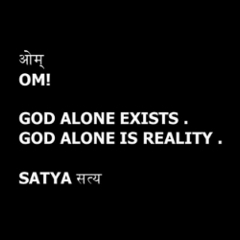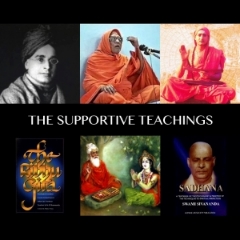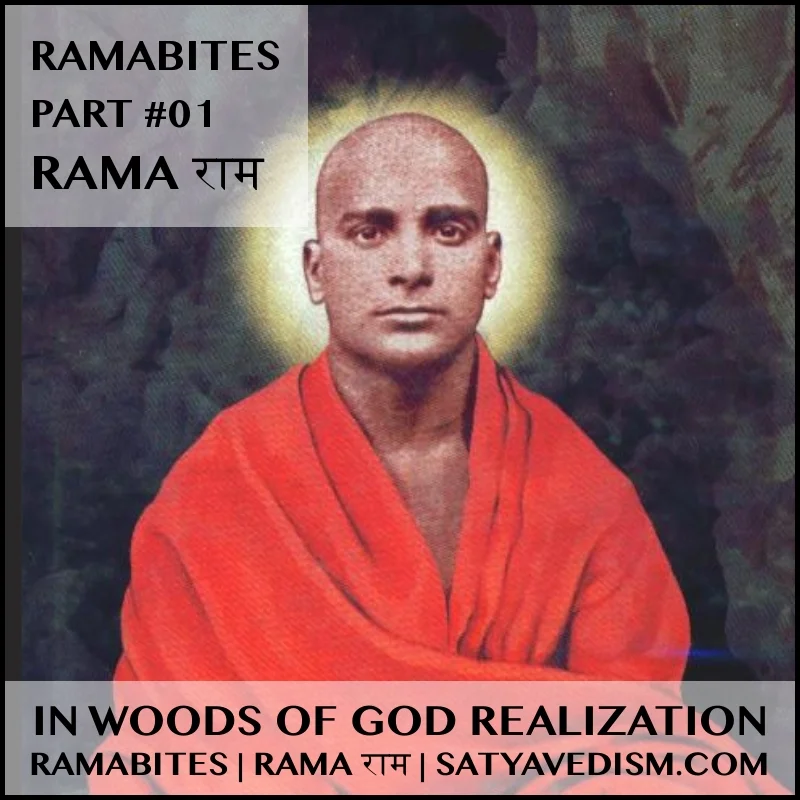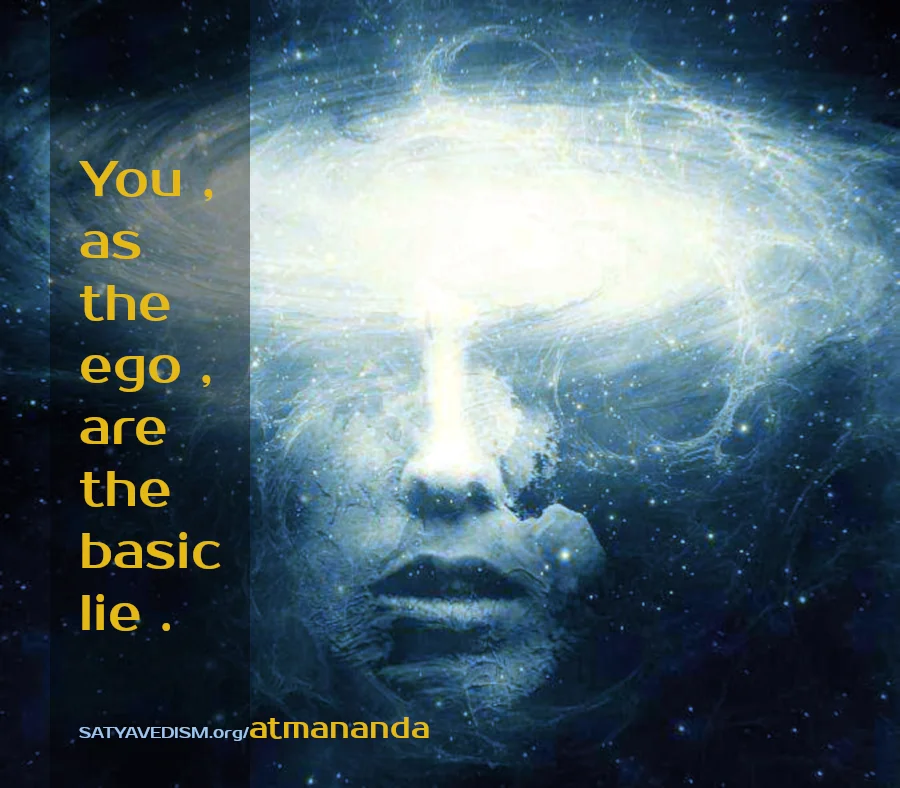BHAGAVADGITA | 13.2 | PT 2 | AMOETD
| | homeBHAGAVADGITA | 13.2 | SRI ADI SANKARACARYA
|| BHAGAVADGITA | 13.2 | PART 2 OF 3 ||
Similarly , it is known that an unenlightened one , who identifies oneself with the body etc , and who practices righteousness and unrighteousness under the impulsion of attachment and aversion , takes birth and dies .
It cannot be reasonably denied by anyone that , those who see the Self as different from the body etc , become liberated as a result of the cessation of righteous and unrighteous conduct , which depends on the destruction of attachment and aversion .
This being so , the Knower of the field , who is in reality is GOD Itself , appears to have become a mundane soul owing to the various adjuncts which are products of ignorance ; as for instance the individual soul becomes identified with the body etc .
For it is a well-known fact in the case of all creatures that their self-identity with the body etc which are not-Self is definitely caused by ignorance . Just as , when a stump , of a tree is firmly regarded as a person , the qualities of a person do not thereby come to exist in the stump , nor do the qualities of the stump come to the person , similarly the property of consciousness does not come to the body , nor those of the body to consciousness .
It is not proper that the Self should be identified with happiness , sorrow , delusion , etc , since decrepitude and death , are equally the products of ignorance .
OBJECTION : May it not be said that this is not so , because of dissimilarity ? The stump and the person , which are verily objects of perception , are superimposed on each other through ignorance by their perceiver . On the other hand , in the case of the body and the Self , the mutual superimposition occurs verily between a knower and an object of perception . Thus , the illustration is not equally applicable .
Therefore , may it not be that the properties of the body , though objects of knowledge , belong to the Self which is the knower ?
REPLY : No , since there arises the contingency of ( the Self ) becoming devoid of consciousness !
If qualities such as happiness , sorrow , delusion , desire , etc of the body etc , which are the field and are objects of knowledge , indeed belong to the knower , then it will be necessary to explain the particular reason why some of the qualities of the object of knowledge — the field — superimposed through ignorance belong to the Self , while decrepitude , death , etc do not .
( On the contrary ) it is possible to infer that they ( happiness etc ) do not pertain to the Self , since , like decrepitude etc , they are superimposed on the Self through ignorance , and because they are either avoidable or acceptable .
This being so , the mundane state , consisting of agentship and enjoyership pertaining to the objects of knowledge , is superimposed on the knower through ignorance .
Hence , nothing of the knower is affected thereby — in the same way as nothing of the sky is affected by the superimposition of surface , dirt , etc ( on it ) by fools .
Such being the case , not the least touch of the mundane state is to be apprehended with regard to the almighty * GOD , the Knower of the field , even though IT exists in all the fields .
For it is nowhere seen in the world that anybody is benefitted or harmed by a quality attributed to one through ignorance . As for the statement that the illustration is not equally applicable — that is wrong .
OBJECTION : How ?
REPLY : Because what is intended as common between the illustration and the thing illustrated is merely the superimposition through ignorance . There is no disagreement as to that . However , as for your contention that the illustration fails with regard to the Knower , that too has been shown to be inapt by citing the example of decrepitude etc * .
OBJECTION : May it not be that the Knower of the field becomes a mundane being owing to having ignorance ?
REPLY : No , because ignorance is of the nature of tamas .
Since ignorance has the nature of covering , it is indeed a notion born of tamas ; it makes one perceive contrarily , or it arouses doubt , or it leads to non-perception .
For it disappears with the dawn of discrimination .
And the three kinds of ignorance , viz non-perception etc * , are experienced when there are such defects as blindness etc , which are forms of tamas and have the nature of veiling * .
OBJECTION : Here it is asserted that if this be the case , then ignorance is a quality of the knower ?
REPLY : No , for the defects such as blindness are seen to belong to the eye which is an organ . As for your notion that
" ignorance is a quality of the experiencer , and the very fact of being possessed of the quality of ignorance is what constitutes the mundane state of the Knower of the field ; the assertion which was made ( by the Vedantin ) in that connection ,
' that the Knower of the field is GOD Itself and not a mundane being ' , is improper " , — this is not so .
As for example : Since such defects as false perception etc are seen to belong to the organ eye , therefore false perception etc or their causes , viz defects like blindness etc , do not belong to the perceiver . Just as blindness of the eyes does not pertain to the perceiver since on being cured through treatment it is not seen in the perceiver , similarly notions like non-perception , false perception , doubt , and their causes should , in all cases , pertain to some organ ; not to the perceiver , the Knower of the field .
And since they are objects of perception , they are not qualities of the Knower in the same way that light is of a lamp .
Just because they are objects of perception , they are cognized as different from one's own Self .
Besides , it is denied by all schools of thought that in Liberation , when all the organs depart , there is any association with such defects as ignorance etc . If they ( the defects ) be the qualities of the Self Itself , the Knower of the field , as heat is of fire , then there can never be a dissociation from them .
Again , since there can be no association with or dissociation from anything for the immutable , formless Self which is all-pervading like space , therefore it is established that the Knower of the field is ever identical with GOD . This follows also from the utterance of the Lord ,
" Being without beginning and without qualities " ( 31 ) , etc .
OBJECTION : Well , if this be so , then , owing to the nonexistence of the world and the mundane creatures , there will arise the defect of the uselessness of the scriptures , etc .
REPLY : No , since this ( defect ) is admitted by all . A defect that is admitted by all who believe in the Self is not to be explained by one alone !
OBJECTION : How has this been admitted by all ?
REPLY : People of all schools of thought who believe in the Self admit that there is no worldly behaviour or the behaviour of a worldling in the liberated ones .
Yet , in their case ( ie in those various schools ) , it is not admitted that there is any possibility of such a defect as the scriptures becoming useless , etc .
Similarly , in our case let the scriptures be useless when the knowers of the field become identified with GOD ; and purposeful within the sphere of ignorance . This is just as in the case of all the dualists , where it is admitted that the scriptures etc become useful in the state of bondage , not in the state of Liberation .
OBJECTION : Well , for us all dualists , bondage and Liberation of the Self are real in the truest sense . So , when things to be renounced or accepted as also the means thereto are real , the scriptures etc become meaningful .
On the other hand , may it not be that for the non-dualists , since duality does not exist in truest sense , it being the creation of ignorance , therefore the state of bondage of the Self is not ultimately real , and hence the scriptures etc become purposeless as they remain shorn of a subject-matter ?
REPLY : No , since it is not logical that the Self should have different states . If this were possible at all , then the states of bondage and freedom of the Self should be simultaneous , or successive . As to that , they cannot occur simultaneously , since they are contradictory — like rest and motion in the same object .
Should they occur successively and without being caused , then there will arise the contingency of there being no Liberation ; if they occur through some cause , then , since they do not exist inherently , there arises the contingency of their being ultimately unreal . In this case also the assumption becomes falsified .
Moreover , when ascertaining the precedence and succession of the states of bondage and Liberation , the state of bondage will have to be considered as being the earlier and having no beginning , but an end . And that is contrary to valid means of knowledge .
Similarly it will have to be admitted that the state of Liberation has a beginning , but no end — which is certainly opposed to valid means of knowledge . And it is not possible to established eternality for something that has states and undergoes a change from one state to another .
On the other hand , if for avoiding the defect of non-eternality the different states of bondage and Liberation be not assumed , then , even for the dualists such defects as the purposelessness of the scriptures become certainly unavoidable . Thus , the situation being similar ( for both ) , it is not for the Advaitin ( alone ) to refute the objection .
Nor do the scriptures become purposeless , because the scriptures are applicable to the commonly known unenlightened person . It is indeed in the case of the ignorant person — not in the case of the enlightened one — that there occurs the perception of identity of the Self with the effect ( ie enjoyership ) and the cause ( ie agentship ) which are not-Self .
For , in the case of the enlightened persons , it is impossible that , after the dawn of the realization of non-identity of the Self with effect and cause , they can have Self identification with these as " I " . Surely , not even a downright fool , or a lunatic and such others , see water and fire or shade and light as identical ; what to speak of a discriminating person !
Therefore , such being the case , the scriptures dealing with injunction and prohibition do not concern a person who sees the distinction of the Self from effect and cause .
For , when Devadatta is ordered to do some work with the words , " You do this " , Visnumitra who happens to be there does not , even on hearing the command , conclude , " I have been ordered " .
But this conclusion is reasonable when the person for whom the order is meant is not understood . So also with regard to cause and effect .
OBJECTION : Can it not be that , even after having realized the Self as different from effect and cause , it is quite reasonable from the standpoint of natural relationship * , that with regard to the scriptures one should have the understanding ,
" I am enjoined to adopt the means that yields a desired result , and am prohibited from adopting the means that leads to an undesirable result " ?
As for instance , in the case of a parent and progeny , or between others , even though there exists the awareness of the distinction between each other , still there is the comprehension of the implication of the injunctions and prohibitions meant for one as being also meant for the other * .
REPLY : No , since identification of the Self with effect and cause is possible only before attaining the knowledge of the Self as distinct ( from them ) . It is only after one has followed ( or eschewed ) what is enjoined or prohibited by the scriptures that one comprehends one's own distinction from the effect and cause ; not before * .
Therefore it is established that the scriptures dealing with injunctions and prohibitions are meant for the ignorant .
OBJECTION : Well , if ( injunctions and prohibitions ) such as ,
" One who desires heaven shall perform sacrifices " ,
" One should not eat poisoned meat " , etc
be not observed by those who have realized the Self as distinct and by those who view only the body as the Self , then , from the absence of any observer of those ( injunctions etc ) there would follow the uselessness of the scriptures .
REPLY : No , because engagement in or abstention from actions follows from what is ordained by the scriptures .
As for one who has realized the identity of the Lord and the knower of the field , one who has realized Brahman — one does not engage in action . Similarly , even the person who does not believe in the Self does not engage in action , under the idea that the other world does not exist .
However , one who has inferred the existence of the Self on the ground of the wellknown fact that study of the scriptures dealing with injunctions and prohibitions becomes otherwise purposeless , who has no knowledge of the essential nature of the Self , and in whom has arisen hankering for the results of actions — one faithfully engages in action .
This is a matter of direct perception to all to us . Hence , the scriptures are not purposeless .
|| UPADESA SAHASRI : A METHOD OF ENLIGHTENING THE DISCIPLE || I.I.6 || COMPLETE AMOETD SERIES ➤➤ | INTRODUCTION ➤➤ ||
|| THIS SCRIPTURE SERIES SOURCE || ➤
|| 1 || http://www.SATYAVEDISM.com ||
|| 2 || http://bit.ly/SRIADISHANKARA ||
http://www.SATYAVEDISM.com/shankara/amoetd/
SOURCE | SATYAVEDISM.ORG



































































































